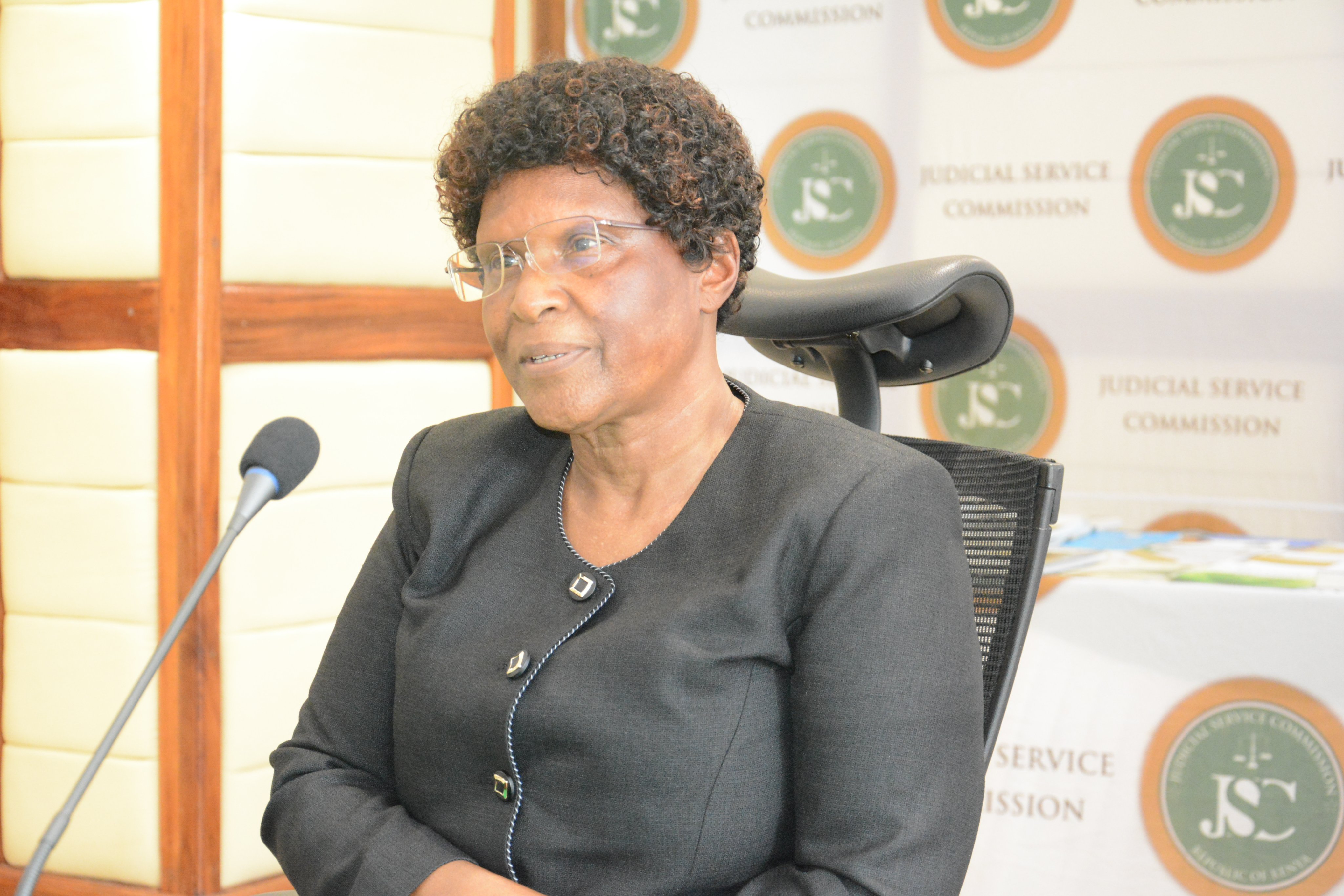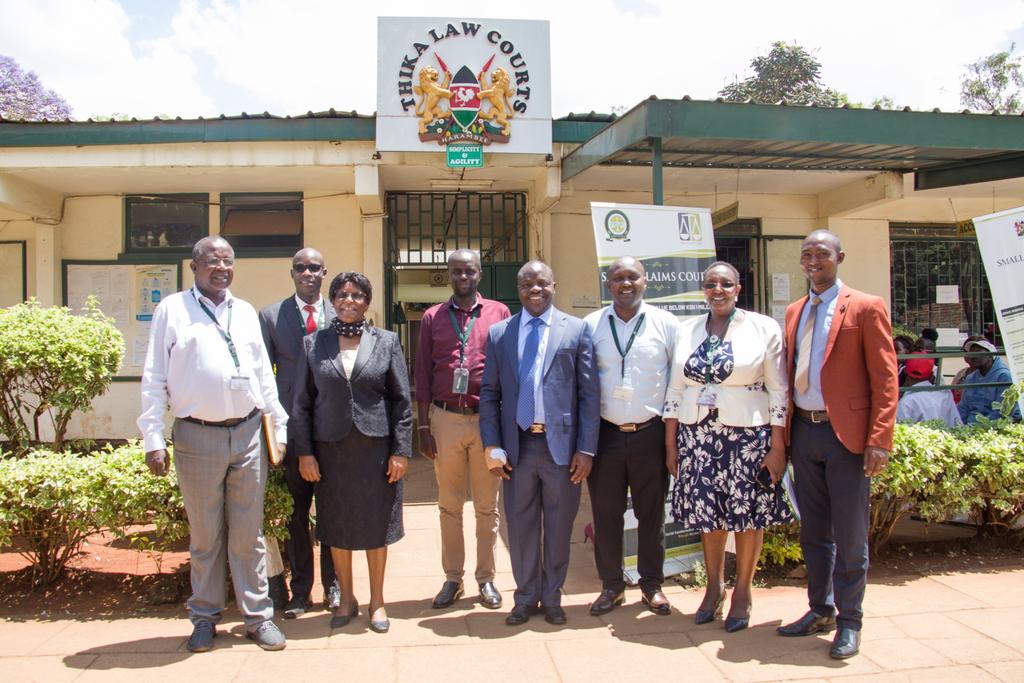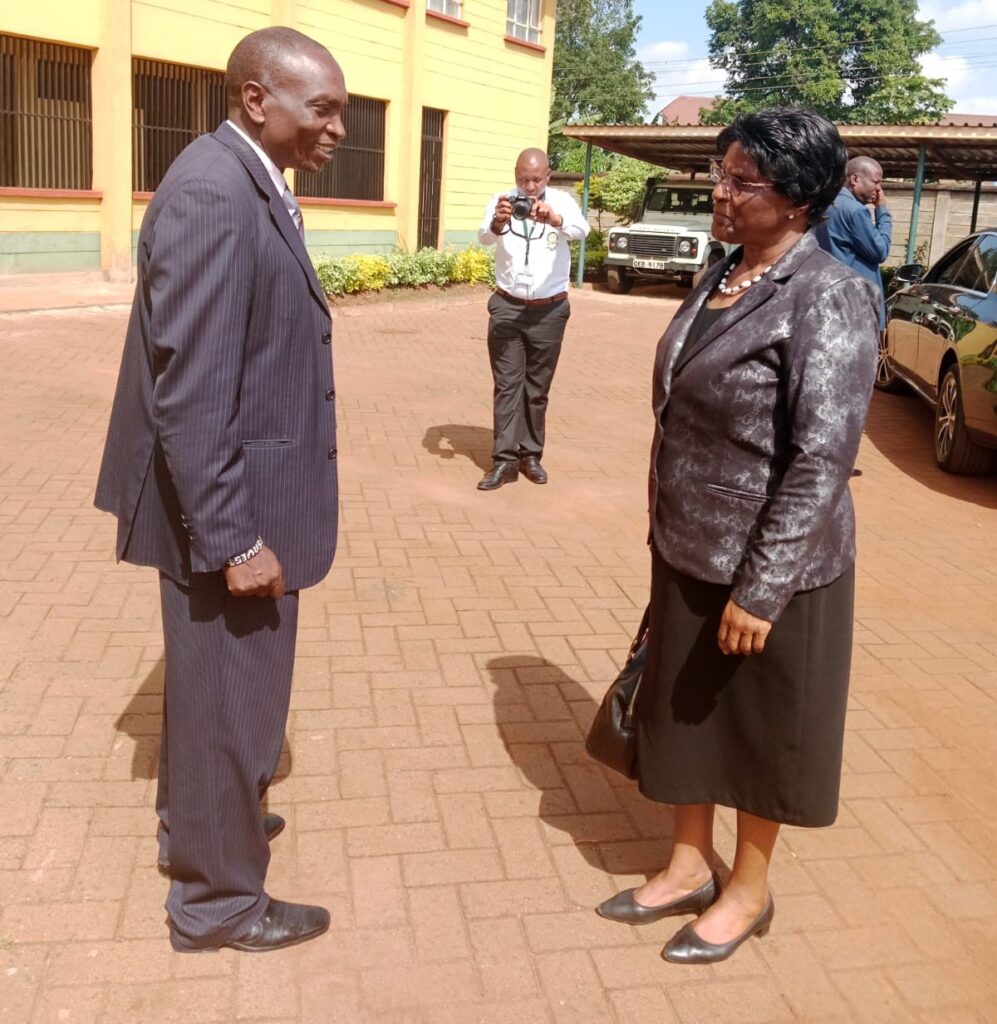
Trailblazing judge paves way for women in Kenyan law
In honour of International Day of Women Judges on March 10, Judge Florence Muchemi, a distinguished Kenyan jurist and Presiding Judge of the High Court of Kenya in Thika, shared her remarkable journey and unwavering commitment to justice and equality.
Judge Florence’s narrative is one of a pursuit of fairness. Witnessing societal imbalances, particularly towards women, ignited her passion for law. Law school became her tool to combat these inequalities, ensuring equal treatment under the law.
The path was laden with challenges.
“It was not easy. I come from a humble background, my parents could barely afford school fees and I did not see any mentors around. However, through hard work in school, I obtained the grades that kept taking me to the next level until at the university,” Judge Florence said.
Despite possessing strong qualifications, women in law have had to fight tirelessly for recognition. Undeterred, Judge Florence rose through the ranks of the judiciary from magistrate to judge. Her influence extends beyond the courtroom. Serving as the inaugural chairperson of the environmental tribunal, she tackled environmental concerns and advocated for responsible development.

Judge Florence acknowledges the strides made in Kenya’s judiciary. More women now occupy leadership roles, including Chief Justice Her Ladyship Martha Koome and Deputy Chief Justice Lady Justice Philomena Mwilu. However, Judge Florence underscores the necessity for continued efforts to guarantee equal opportunities for aspiring women judges.
Judge Florence’s dedication to the administration of justice with fairness serves as an inspiration, particularly to aspiring women lawyers.

The judge’s message to the women aspiring to become lawyers is “hard work, self-confidence, and determination as well as trusting in God.”
She quotes Philippians 4:13
“For I can do everything through Christ, who gives me strength.”
The judiciary provides a comprehensive mentoring program for new judges, emphasizing integrity and professionalism.
However, Judge Florence’s mentorship extends beyond formal channels. She guides aspiring judges, ranging from law students to young girls contemplating a legal career.
By sharing her experience, the judge emphasizes that success knows no bounds, irrespective of one’s background. She also highlights the plethora of resources available today for aspiring women judges as compared to her journey.
Judge Florence underscores the significance of the International Association of Women Judges (IAWJ). Through this platform, judges from diverse nations exchange challenges and solutions, fostering solidarity and empowering them to advocate for their rights and those of women in their communities.
During International Women’s Day on March 8, Justice Florence, together with other women judges and magistrates, visited Thika Women’s Prison. They spoke to the women, encouraging them not to give up and to look forward to a better life after they have served their time.

In her journey as a judge, she candidly addresses the challenges confronting judges such as heavy workload as well as balancing work and family. As a mother of three, moving open transfer from one station to another was not easy in that she had to look for new schools for the children, for the family to settle down. Despite those challenges, her children are now grown up and have gone through school successfully.
Judge Florence was appointed District Magistrate II (Prof.) in 1984. As a magistrate, she encountered challenges as a head of the station working with men who did not easily accept being led by her at her younger age. Later on, things changed when professional magistrates started streaming in.
According to the judge, more training is required in matters related to gender-based violence because it is a critical issue affecting society mostly in the African continent. Additionally, she advocates for a robust counseling department to support judges’ mental well-being.
Judge Florence’s steadfast dedication to mentoring and collaboration is truly inspiring. Her narrative serves as a poignant reminder of the transformative influence women judges can wield on the legal system and society at large.






